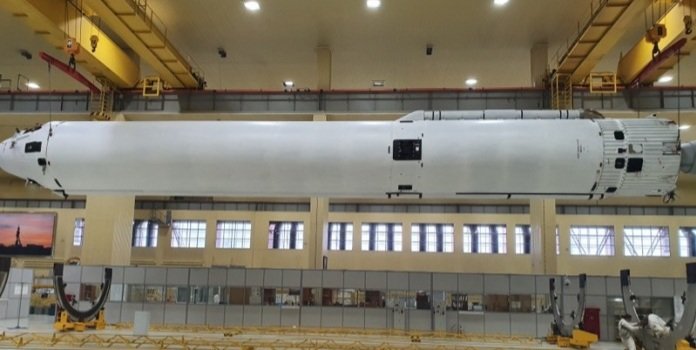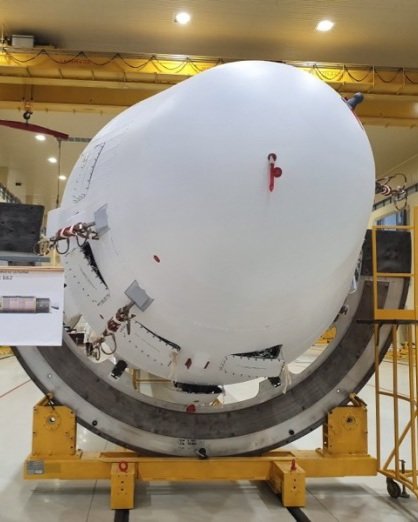Russian space agency places $31 mln order for manufacture of Angara light carrier rocket
The rocket is required to be manufactured and delivered by October 15, 2021

MOSCOW, June 10. /TASS/. Russia’s State Space Corporation Roscosmos has placed an order to the tune of 2 billion rubles ($31 million) for the manufacture of a light Angara-1.2 carrier rocket for the launch of Gonets-M satellites, according to the information posted on the government’s procurement website on Monday.
"The manufacture and the delivery of an Angara-1.2 carrier rocket for the launch of Gonets-M Nos. 33, 34 and 35 satellites. The initial (maximum) price of the contract is 2.028 billion rubles," the statement says.
According to the technical assignment, the rocket is required to be manufactured and delivered by October 15, 2021.
A light Angara-1.2PP was launched in July 2014. The rocket carried a spacecraft mockup. Now the Russian space agency has placed its first order for this rocket for launching real satellites.
Bids for an open tender, which will be held electronically, will be accepted through July 11, 2019.
"The supplier will be required to provide quality warranty for the products supplied. The warranty period shall be no less than ten years from the date of signing a document on the products’ acceptance by the state customer. Operational readiness and acceptance tests should be carried out in compliance with GOST state standards and technical conditions in the process of controlling the quality of the Angara-1.2 carrier rocket," the tender’s documentation says.
The output’s technical acceptance should be conducted by the quality acceptance office of Russia’s Defense Ministry. In the manufacture and the delivery of the Angara-1.2 carrier rocket, the main contractor must prevent any theft (loss) of data media constituting a state secret, including illegitimate access to the data constituting a state secret, as well as data leaks constituting a state secret, via technical channels," according to the documentation.
Share
More:
http://tass.com/science/1063148








